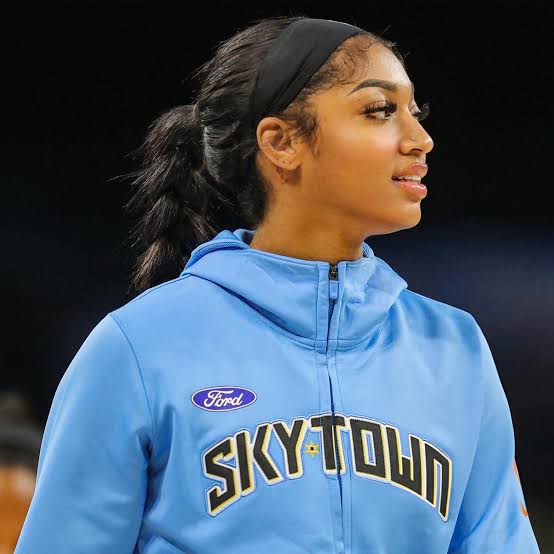Chicago Sky rookie Angel Reese expressed her frustration with the lack of proactive measures from the media in addressing racism in women’s basketball, stating that more should have been done before the situation escalated.
Her comments followed the WNBA’s condemnation on Wednesday of “racist, derogatory or threatening comments” directed toward players, particularly after Connecticut Sun All-Star Alyssa Thomas spoke out about “racial comments from the Indiana Fever fan base” following the Sun’s 87-81 victory over the Fever in their playoff series.
Reese emphasized that racism has been a persistent issue in the league, and she herself has been targeted by racially motivated hate for quite some time. “The media has benefited from my pain & me being villainized to create a narrative,” Reese shared on X, formerly known as Twitter.
“They allowed this. This was beneficial to them… Y’all a little late to the party and could have tried to put out this fire way before it started.”
Reese’s frustration grew in response to a video featuring ESPN’s Andraya Carter, who stated that “excitement around the league is at its highest, but the racial slurs and the derogatory comments and the online bullying are also at their worst.”
According to Reese, she has been dealing with similar issues for two years but has often been dismissed. “I’ve been going through this for the last 2 years but was told ‘save the tears’ & ‘stop playing victim,'” she added.
The racial tensions Reese refers to are not new. She and Indiana Fever rookie Caitlin Clark have often been unfairly compared and pitted against each other since their college days playing for LSU and Iowa, respectively.
While their rivalry and the subsequent popularity of the 2024 WNBA rookie class have significantly increased viewership and attention for the league, not all of the attention has been positive or in good faith. In July, Reese’s mother shared screenshots of racist messages her daughter had received from supposed WNBA fans who claimed to support Clark, but in reality, spewed hate toward Reese.
“I sometimes share my experiences of things that have happened to me but I’ve also allowed this to happen to me for way too long and now other players in this league are dealing with & experiencing the same things,” Reese wrote in her statement. She expressed sorrow for fellow players who continue to experience racially charged hate and added that the harassment goes beyond normal criticism related to the game of basketball.
“This isn’t OK at all. Anything beyond criticism about playing the game we love is wrong. I’m sorry to all the players that have/continue to experience the same things I have.”
Reese’s decision to launch her own podcast, Unapologetically Angel, stemmed from her desire to reclaim her narrative and take control of her story. “This is why I started my podcast. To take my voice back and create the narrative of who I really am,” she said. While she does not expect apologies for the treatment she and others have faced, she does believe something needs to change. “At the end of the day, I don’t want an apology nor do I think this will ever stop, but something has to change.”
The discussion surrounding racism in the WNBA was reignited after Alyssa Thomas publicly called out inappropriate fan behavior. “We’ve been professional throughout the whole entire thing,” Thomas said. “But I’ve never been called the things that I’ve been called on social media, and there’s no place for it.” She labeled the fan behavior as “unacceptable.”
Following these incidents, the WNBA issued a statement declaring that it is “monitoring threat-related activity” and working with teams and venues to ensure safety, including involving law enforcement when necessary. “While we welcome a growing fan base, the WNBA will not tolerate racist, derogatory, or threatening comments made about players, teams and anyone affiliated with the league,” the statement concluded.
Reese’s words, along with Thomas’s concerns, highlight the need for a concerted effort to address racism within the league, both from fans and media, as players continue to face hate beyond the basketball court.


























































